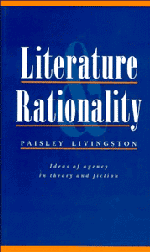Summary
Franz Kafka was not Jean de La Fontaine, and his stories do not end with tidy statements of a moral. None the less, I shall conclude the present study by drawing a few lessons from a reading of ‘The Burrow’, a fable that conveys a remarkable characterization of a small and limited creature's reasonings.
At the outset of the narrative, the owner of the burrow reviews the various calculations that have gone into the design of his dwelling: ‘I have completed the construction of the burrow and it seems to be successful.’ Now that the construction is finished, there are brief moments of tranquility and confidence when the animal relaxes and enjoys the advantages of his dwelling. Most of the time, however, the animal frets anxiously over the possible flaws in the construction. For example, although the burrow's single entrance is cleverly concealed, it could still be found by hostile creatures, who might enter the burrow and take its owner by surprise. The animal ponders possible ways of increasing the overall security of the dwelling, but confronts the fact that many of the construction's basic structural features are the best that he can devise. Others could only be altered at the cost of great risk and protracted labour, with only a minimal – and perhaps wholly imaginary – advantage to be gained.
- Type
- Chapter
- Information
- Literature and RationalityIdeas of Agency in Theory and Fiction, pp. 205 - 209Publisher: Cambridge University PressPrint publication year: 1991



